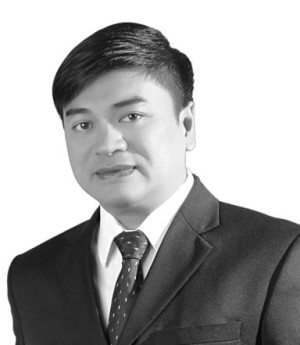
BAÑOC
If Trillanes wins, good for him, but if he eventually loses in the legal battle, he can always go to De lima way by asking for the people’s sympathy. And look what happened to De lima! Has there been an outrage? None.
Evaluating the media reports, I can say that both President Rodrigo Duterte and Sen. Antonio Trillanes’ camps have good arguments on their respective positions on the controversial amnesty issue.
In one episode of my Straight to the Point radio program aired over DYHP RMN Cebu, I happened to interview Atty. Florin Hilbay, former solicitor general, law professor and constitutionalist. His theory is that an amnesty given to Trillanes cannot anymore be withdrawn or revoked.
On the other hand, former Solicitor General, former Supreme Court Associate Justice, law professor, law reviewer, constitutionalist and constitutional law book author Antonio Nachura in an interview articulated a different view.
He said, “In such a case, we do not talk of revocation of amnesty. We say: There is no valid amnesty. And so there is nothing to revoke.”
Hilbay’s opinion is correct if Trillanes’ claim is sure enough — that he submitted all the requirements and followed the necessary procedures in obtaining an amnesty.
Nachura’s opinion is also correct if government’s claim is true that Trillanes’ amnesty is defective or invalid from the very start (void ab initio) because he failed to personally apply for it, and he failed to admit his guilt which is a condition sine qua non.
So far, Trillanes failed to produce its received copy.
It is noteworthy that President Duterte has an additional ground in declaring Trillanes’ amnesty as void.
He said that former defense secretary Voltaire Gazmin was the one who signed and approved Trillanes’ amnesty and not former President Benigno Aquino.
Duterte’s claim has legal basis as revealed by Chief Legal Counsel Salvador Panelo during the one-on-one interview with the President.
Panelo mentioned the case of Constantino vs. Cusia GR. No. 106064, October 13, 2005.
I carefully revisit this case and if not for lack of space I would have wanted to give a summary in layman’s language.
I urge every law student especially those who are going to take the bar exam this year to take note of its important doctrines.
Here, the Supreme Court had the opportunity to discuss the powers of the President.
It substantially said that there are powers vested in the President by the Constitution which may not be delegated to or exercised by an agent or alter ego of the President.
It emphasized that the declaration of martial law, the suspension of the writ of habeas corpus, and the exercise of the pardoning power demands the exclusive exercise by the President of the constitutionally vested power.
Let us wait and trust the court to resolve the matter.
If Trillanes wins, good for him, but if he eventually loses in the legal battle, he can always go to De lima way by asking for the people’s sympathy.
And look what happened to De lima! Has there been an outrage?
None.